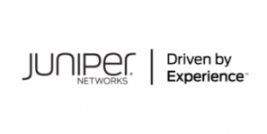Conference content will be submitted for inclusion into IEEE Xplore, Google Scholar and other Abstracting and Indexing (A&I) databases. ITNAC 2022 is technically co-sponsored by the IEEE Computer Society and the IEEE Communications Society. We welcome the support of the IEEE and encourage participants to join the IEEE society technical committees.
Keynotes
| Professor Darryl Veitch, University of Technology Sydney, IEEE Fellow, Topic - At the Core of Internet Timing - Read more Watch the presentation here |
| Professor Robert Minasian, University of Sydney, IEEE Fellow, Topic - Integrated Silicon Photonics Signal Processing and Sensing - Read more Watch the presentation here |
| Emeritus Professor David Cheriton, Chief Data Centre Scientist, Juniper Networks, Topic - Computer Network Automation - Read more Watch the presentation here |
| Professor Peter Smith, Victoria University of Wellington, Topic - Intelligent surfaces and fluid antenna systems – new technologies for 6G? - Read more Watch the presentation here |
| Professor Nurul Sarkar, Auckland University of Technology, Topic - Tips and tactics for successful PhD research - Read more Watch the presentation here | Special Issue Announcement Conference and workshop authors will be invited to submit an extended paper to the open access Future Internet (Scopus CiteScore 5.4). Read more Expected submission deadline will be 30 April 2023. Contact the committee to register your interest. | |
| Conference Dinner Speaker, Mr Sam Leggett, Computer Emergency Response Team New Zealand, Topic - CERT (Computer Emergency Response Team) NZ, is a government organisation that receives cyber incident reports, tracks cyber security incidents or attacks, and provides advice and alerts on how to respond and prevent further attacks. We work to support businesses, organisations and individuals who are affected (or may be affected) by cyber security incidents. Our primary goal is to improve cyber security in New Zealand, which means, an increased comprehension of the threat landscape, better prevention of incidents, and reducing the impact of incidents. This presentation will provide a high level view of who CERT NZ are and what we do. We’ll discuss some insights into the common threats and trends CERT NZ is seeing through incident reporting her in NZ. We will look at some of the resources freely available on CERT NZ websites, such as our 10 Critical Controls, top 11 tips for businesses and ransomware lifecycle diagram. We will also discuss the global landscape and the realistic implementation of best practise cyber security measures. Read more | ||
Workshops
Workshop details can be found here - click here
Workshop: 1st International Workshop on ICT for Combating Climate Crisis (ICT4C3)
Climate change is the defining crisis of our time and it is happening even more quickly than we feared. But we are far from powerless in the face of this global threat. As Secretary-General António Guterres pointed out in September 2019, “the climate emergency is a race we are losing, but it is a race we can win”. No corner of the globe is immune from the devastating consequences of climate change. Rising temperatures are fuelling environmental degradation, natural disasters, weather extremes, food and water insecurity, economic disruption, conflict, and terrorism. Sea levels are rising, the Arctic is melting, coral reefs are dying, oceans are acidifying, and forests are burning. It is clear that business as usual is not good enough. As the infinite cost of climate crisis reaches irreversible highs, now is the time for bold collective actions.
Workshop: Technical Deep Dive into Network Automation with Apstra
Juniper’s Apstra is a modern enterprise grade, commercial implementation of David Cheriton’s vision of vendor-agnostic, full-lifecycle network automation. During this session, we will explore how Apstra reduces operational burden by configuring, monitoring and identifying faults in the network by leveraging key concepts and technologies such as Intent Based Networking, the Single Source of Truth (SSOT) Graph Database, and Intent Based Analytics. The session will include a live demonstration of how a well-engineered network automation system can reduce time and increase efficacy of what would be a complex and potentially troublesome set of tasks without automation. In the session you will learn how a graph database can programmatically represent and visualize the network, as well as watch the graph grow, change and react to configuration changes and events in the network.
ITNAC Focus Topics
With the increasing focus on modelling and simulation in the fields of cyber security, big data, distributed computing, mobile computing, cognitive computing, cloud computing, computing tools, applications, simulation tools, system performance and data and computer communications the demand for high quality research outcomes has never been greater. ITNAC has been the forum for researchers and engineers to present and discuss topics related to advanced computing and data communication network technologies, services and applications.
ITNAC 2022 is a conference that aims to advance both the state-of-the-art and the state-of-the-practice of computing systems integration with current and emerging data communications and computing technologies and includes within its scope topics on the software and algorithmic aspects of current, emerging, and at times novel computing paradigms fostered by such open communication networks and computer system communications methods and infrastructure with collaborative overlap
Novel contributions are presented in the form of keynote speeches by international experts, peer-reviewed technical papers, and posters. ITNAC 2022 seeks to address and capture highly innovative and state-of-the-art research from academia, industry and standardization bodies.
ITNAC 2022 is an international conference and forum for the presentation of research outcomes covering timely and relevant aspects concerning modelling and simulation of distributed, mobile, cognitive and cloud computing, computer and data communications, local and metropolitan networks, optical, wired and wireless telecommunication networks and applications. Contributions are welcome on all advanced research and particularly (but not limited to) on the following topics:
- Wireline networks
- Wireless networks
- Multi-access edge computing, Fog, Mist
- Modelling and Simulation
- Cyber-Networks, Data Mining and Cyber-Security
- Distributed, Cognitive and Cloud Computing
- Network Applications & Convergence
- Local and Metropolitan Networks
- Community and corporate Wi-Fi
- Data Communications
- Networks and Management
- Software Defined Networking
- Internet Technologies and Applications
- Emerging Technologies
- Mobility and Vehicular Networks
- Mobile Cellular and Wireless Networks
- Optical Communications
- Wireless Sensor Networks
- Power Efficiency and Sustainability
Wireline Networks
The field of wireline networking has evolved in recent years and the shift to fibre networks is increasing. Advances in optical communications, hybrid networks, and the utilization of new and innovative approaches to make networks more reliable and resilient has continued.
The goal of this track is to provide a forum for the presentation of new advances, ideas, and solutions from theoretical, experimental, and applied research to address specific new challenges and emerging issues concerned with this field. We seek papers describing original, previously unpublished research results.
Topics of interest include, but are not limited to:
- Optical Communications & Networking
- Cloud & Data Center Networks
- Software-Defined Infrastructure
- (Networks, Storage, and Compute)
- Core Network Architectures and Protocols
- Network Resilience
- Anomaly Detection
- Reliability Performance Analysis
- Carrier Networks
- Metro, Local & Access Networks
- Submarine Networks
- High-performance Routing
- Heterogeneous Networks
- Network Architectures for Smart Grid
- Hybrid Wireline-Wireless Networks
- xDSL networks
Mobile & Wireless Networks
The field of mobile and wireless networks is a rapidly evolving area. Recent advances in technologies for emerging mobile and wireless networks, including mobile ad hoc networks, vehicular networks, 5G/6G cellular networks, among others, have the potential to enable many new mobile and wireless services and applications that can profoundly impact our lives in positive ways.
The goal of this track is to provide a forum for the presentation of new advances, ideas, and solutions from theoretical, experimental, and applied research to address specific new challenges and emerging issues concerned with this field. We seek papers describing original, previously unpublished research results.
Topics of interest include, but are not limited to:
- 5G and 6G
- Wireless access and routing protocols
- Cross-layer design optimisation
- Green, low power, energy efficient and sustainable networking
- Nature and bio-inspired approaches to networking
- Network-based mobile positioning and tracking systems
- Cognitive and cooperative principles for networking
- Inter-working, integration, and convergence issues
- Mobile social and ambient networks
- Mobile and fixed wireless broadband access networks
- QoS provisioning and resource management
- Terminal and network mobility
- Traffic engineering, congestion and admission control
- Techno-economic analysis and business models for emerging networks
- Novel network-enabled applications and services
- Networking standards and regulations
- Security and privacy issues
Internet and Communications Technologies
In the current and the envisioned future Internet, a variety of new technologies and applications is emerging. New networking architectures and design concepts are to be developed which consider interactions with the real world, as well as emerging issues like energy-efficiency or socio-economic aspects. A holistic view is necessary which takes into account the network of the Future, the Internet of services, media and enterprise Internet, but also the Internet of Things. However, there are still significant challenges for the theoretical understanding and on the deployment of Internet technologies.
The goal of the Internet technology track is to bring together people from academia and industry and to stimulate discussions on future Internet applications and future wireline and wireless Internet architectures to accelerate their development. We seek papers describing original, previously unpublished research results.

Topics of interest include, but are not limited to:
- Emerging Technologies:
- Virtualization technology and programmability of FI elements
- Service-oriented architectures and service composition
- Future Internet routing schemes or transport concepts
- IPv6 and its derivatives
- Economic Traffic Management
- Massive MIMO
- Mesh networks, ad-hoc networks, sensor networks, femtocells
- Self-configuring and self-optimizing cellular networks
- Dynamic Spectrum Access and Cognitive Radio
- Airborne Communications
- Ultra-reliable and Low-Latency Communications
- Hybrid Satellite-Terrestrial Communications
- Nano and Molecular Communications and Networks
- Vehicular Networks
- Emerging Applications:
- Content-centric networks
- Social networks
- Multilevel and location-aware mobile services
- Cloud computing
- Software as a service
- Grid computing
- Peer-to-peer networks and overlays
- Multimedia support e.g. vehicle-2-X communications
- Internet governance
- Emerging Issues:
- Artificial Intelligence
- Next Generation Internet Architecture
- Energy efficiency and energy awareness
- Network application awareness
- Network management systems and control plane
- Coarse-grained QoS solutions for scalable Future Internet services
- Quality of Experience
- Support of mobility of devices, users, sessions, networks, and services
- Security and privacy mechanism
- Flexibility to realize new innovations

IPv6 mobility and vehicular networks
- Mobility management and topology control
- Location-based services and positioning
- Micro and macro-mobility
- Mobility, location and handoff management
- Mobile and wireless IPv6
- IPv6 security
- Wireless broadband mobile access
- ad hoc and sensor networks
- Wireless multicasting
- Wireless mesh networks
- Topology control in wireless networks
- Physical and MAC layer issues
- IPv6 GeoNetworking
- Cross-layer design and optimization for vehicular networks and cognitive networks
- Security issues for vehicular and cognitive networks
Network Applications and Convergence
Network-Based Applications are a fast growing area for network services.
The goal of this track is to provide a forum for the presentation of new advances, ideas, and solutions from theoretical, experimental, and applied research to address specific new challenges and emerging issues concerned with this field. We seek papers describing original, previously unpublished research results.
Topics of interest include, but are not limited to:
- Software Defined Networks (SDN)
- SDN as Enabling Technology for 5G
- Network Virtualization
- Cloud & Crowd Computing
- Smart Homes & Smart Cities & Smart Buildings
- Resource Planning & Management
- Smartphone Networked Apps
- Content Delivery Networks
- Big Data & Analytics
- Augmented & Virtual Reality
- Cyber-Physical Systems & Networks
- Game Theory in Networks
- Tactile Internet
- Access Control
- Scheduling Algorithms
- Security, Trust and Privacy
Optical Communications
Optical communication technologies will continue to be increasingly important in supporting the future Internet's expected scaling requirements of billions of users, their IT needs and aggregated huge bandwidths. Over the last two decades, optical communication technologies have increased the transmission capacity per fiber by several orders of magnitude, achieving Tbit/s transmissions. If the data traffic usage continues to increase at the current rate, a further increase in the transmission capacity of several orders of magnitude will be needed over the coming decades. This implies that future optical systems and networks should be able to support capacities well over Peta bit/s. However, the current technologies have already begun to reveal several fundamental limits; the electronic speed limit, the Shannon and quantum limit, and the IP bottleneck. The future technologies must overcome these limits ensuring sustainable growth of network traffic. The optical communications theme aims to provide a forum for the presentation and discussion of significant progress of research, development and applications of cutting-edge technologies in optical communication devices, subsystems, systems and networks.

Topics of interest include, but are not limited to:
- Next Generation Broadband Access Networks, Subsystems and Systems
- Optical Ethernet, EPON/GPON, 10Gb/s Ethernet, 100Gb/s Ethernet
- WDM Access Networks, WDM-PON
- Wired/wireless convergence, Telecom/broadcast convergence, IPTV
- Hybrid optical-wireless access networks, Radio-over-fiber
- Higher order modulations and OFDM in optical access networks
- Fiber-to-the-Home/Fiber-to-the-Curve (FTTH/FTTC)
- Grid/cloud computing over optical networks
- Green Internet and energy efficiency
- Next Generation Optical Networks, Subsystems and Systems
- Optical core network architecture, design, control, and management
- Optical cross-connect/add-drop multiplexers, ROADM, and switching subsystems
- Optical packet/burst/flow switching networks and subsystems
- Large capacity optical transmission, WDM, OTDM
- OFDM, higher order modulations and advanced modulation formats in photonics
- Energy efficient optical networks
- Impairments mitigations and performance monitoring techniques
- Digital signal processing in photonics systems
- Free Space optical communications
- Optical Fiber, Components, and Devices
- Fiber design, characterization, fabrication, installation,, and maintenance
- Photonics Crystal fibers
- Polymer/non-silica fibers
- Optical active device and modules
- Optical passive device and modules
- Fiber Bragg grating, fiber lasers/amplifiers, MUX/DEMUX, and demodulators
- Silicon photonics
- Optical MEM
Wireless Sensor Networks
The field of wireless sensor networks is now getting more and more mature, but new design concepts, experimental and theoretical findings, and applications continue to emerge at a rapid pace. Furthermore, there are still significant challenges for the theoretical understanding and practical application of sensor networks.
The goal of the sensor networking track is to bring together people from academia and industry who have interest in the area of wireless ad hoc and sensor networks. We seek papers describing original, previously unpublished research results.
Topics of interest include, but are not limited to:
- Networking protocols: MAC, routing, transport, next generation
- Cooperative communication approaches
- Cross-layer design and optimization
- Broadcasting, multicasting, geocasting
- Quality-of-service, reliability and fault tolerance, coverage and connectivity
- Security
- Supplementary services: localization, time synchronization
- Body sensor networks
- Operating Systems and Software
- Middleware and Macroprogramming
- Information and query processing
- Prototypes, field experiments, testbeds
- Theoretical limits, network scaling
- Novel applications
Networks and Management
Telecommunications and networking policy, regulation and management are an important aspect of deregulation and competition policy formulation. There are significant challenges for the development of an understanding of the dynamics of telecommunications markets. The introduction of solutions and case studies provide an opportunity to analyse outcomes and to learn from research into policy and management practices.
Topics of interest include, but are not limited to:
- General topics related to networks and applications
- Broadband Network Management
- Regional and Remote Networks
- Next generation network regulation
- Communication technology fundamentals










